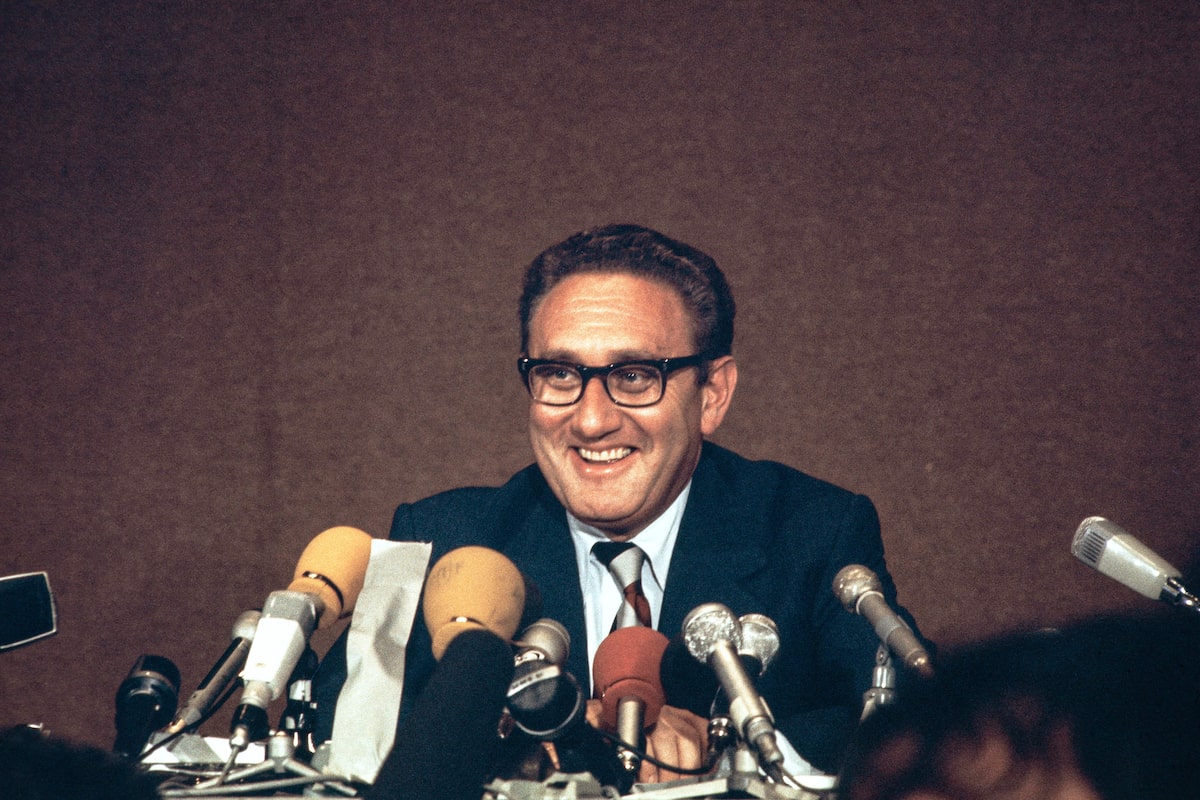U.S. President Richard Nixon’s national security adviser Henry Kissinger during a press conference in June of 1973, after the signing of the Paris Peace Accords to end the Vietnam war.Getty Images
In the run-up to Friday’s meeting between U.S. President Donald Trump and Russian President Vladimir Putin, the most widely cited historical analogy has been the Munich Agreement of 1938. Adolf Hitler made territorial demands of Czechoslovakia and, after quick negotiations – to which Czechoslovakia was not invited – France and Britain agreed to give Germany what it wanted. Instead of sating Hitler, it whetted his appetite.
After intensive lobbying from panicked European leaders, Mr. Trump has spent the past few days trying to reassure them that Munich is not in the cards. He has in fact been talking down expectations for any outcome at all. The get-together, he has repeatedly said, is just to set the table for what he hopes will be a future meeting between the Russian and Ukrainian leaders.
Analysis: Trump and Putin in Alaska is a study in contrasts
In war-weary Kyiv, Ukrainians view Trump-Putin summit with skepticism
Mr. Trump has spoken about punishing Russia if it isn’t willing to accept a ceasefire, but such statements have been rare, and action even rarer. He’s also always uncomfortable calling Russia the aggressor. Most importantly, he’s reluctant to treat Ukraine as an ally, and generally averse to the idea that assisting in its defence is a U.S. obligation. The United States is still providing weapons to Ukraine, but now only if the Europeans pay.
And while Mr. Trump wants to be hailed as a peacemaker – ideally with a Nobel Peace Prize – he doesn’t appear to be overly concerned with sweating the details of what happens after the awards ceremony.
That’s why I’m concerned that the White House is on a path not to Munich, 1938, but Paris, 1973. Not a quick sellout. A steady disengagement.
On Jan. 27, 1973, the Paris Peace Accords were signed, “ending” the Vietnam War. Negotiations had been between U.S. national security adviser Henry Kissinger and North Vietnamese Politburo member Le Duc Tho. The treaty allowed tens of thousands of North Vietnamese troops to remain in occupation of large parts of South Vietnam. That was obviously not something South Vietnamese President Nguyen Van Thieu wanted, but Washington used pressure (to cut off military aid) and promises (to intervene if North Vietnam resumed its invasion) to force Thieu to accept.
The communist North was determined to conquer the South, and treated the accords as a way station. The Americans wanted to disengage – by late 1972, there were almost no U.S. troops left in South Vietnam, and after the accords that tally fell to zero. Washington was also in the early stages of détente with Moscow and Beijing, and saw those relationships as more important than a sideshow war.
And just as U.S. support for Ukraine is unpopular today on the MAGA right, support for South Vietnam was extremely unpopular on the left. An influential part of public opinion was under the impression that the often corrupt and disorganized government in Saigon was the bad guy, while Hanoi’s totalitarian regime was the good guy. John Lennon and Yoko Ono’s song with the lyric “war is over, if you want it” summed things up. If the U.S. would just stop helping the South, the war would be over.
Kissinger and Tho got the Nobel Peace Prize (South Vietnam was even sidelined by the Nobel committee), and the U.S. withdrew the last of its forces. Congress opposed their reintroduction, even in the event of a new North Vietnamese invasion. American air power had stopped the North’s forces in their tracks in 1972, but when Hanoi resumed the offensive in 1975, Washington let events run their course.
The war ended. One side won. The other ceased to exist.
Mr. Putin’s willingness to expend blood and treasure to achieve victory in Ukraine is similar to how Hanoi saw its war. The Russian leader may accept tactical setbacks, but he is playing a long game against Mr. Trump, who is impatient for instant gratification.
That said, Ukraine is in a stronger position than was South Vietnam. It needs Western money and arms, but not foreign boots on the ground or planes in the air. Even if Washington washes its hands of Kyiv, the other Western allies will not.
But Mr. Putin has already indicated that he will try to expand the Alaska talks to issues beyond Ukraine, such as opportunities for American investors in Russia or nuclear weapons agreements. Mr. Putin is happy to offer Mr. Trump wins – beyond Ukraine.
The Trump administration appears to be more focused on those things than on a war it does not see as in its interest. Whatever comes out of Friday’s meet-and-greet, the White House has for some time been signalling that, while it doesn’t necessarily want Ukraine to lose, it is ever less concerned with whether Ukraine wins.
